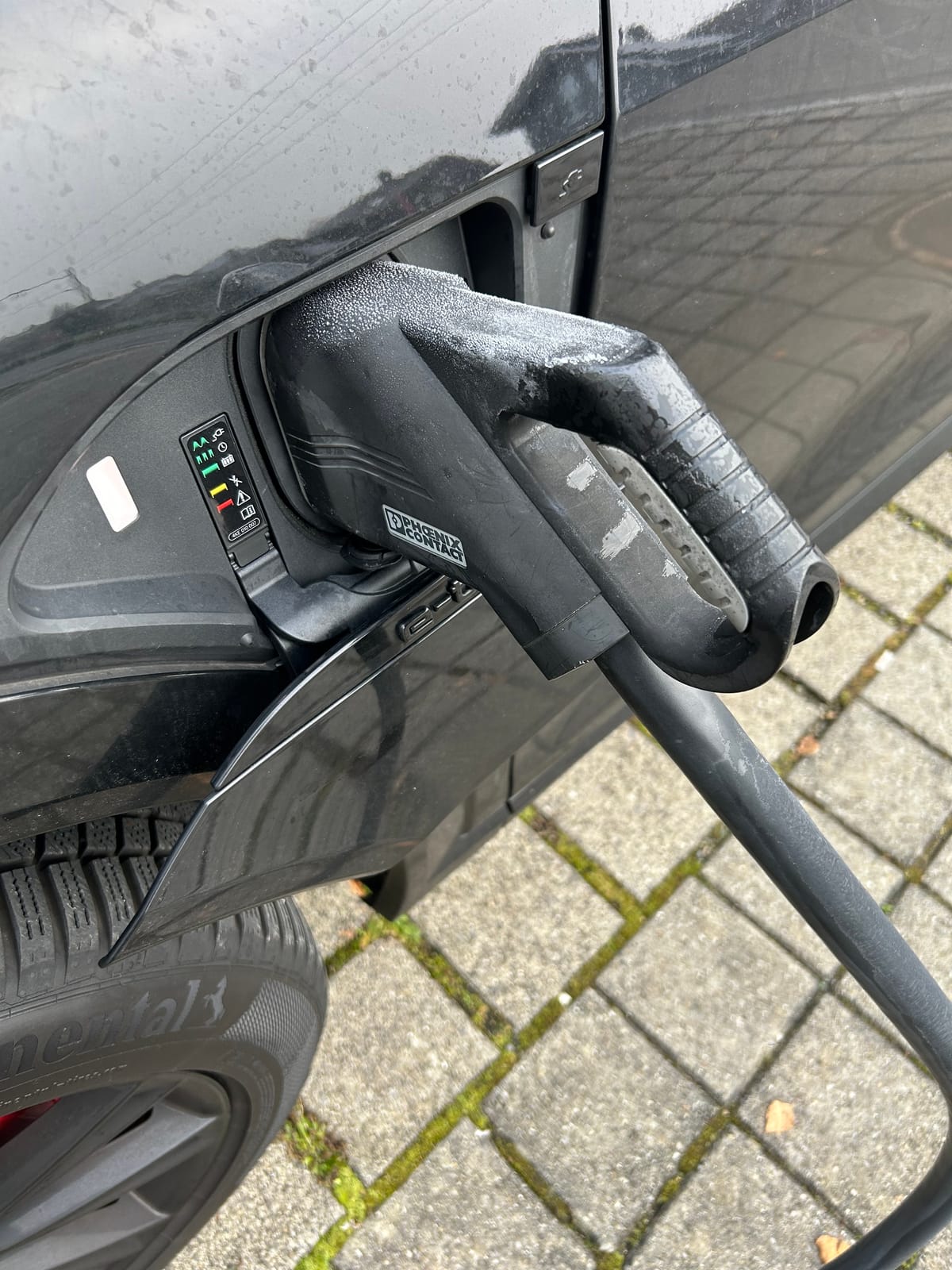40'000 km on electrons

Let's look at the facts first: I use half the energy than I would with a diesel engine.
For these 40tkm I used 12'800 kWh of energy. Assuming that a similar car would consume 6.6l of Diesel per 100km, I would have needed 2'600 l of Diesel.
One liter of diesel provides for ca. 9.8 kWh of energy. Dividing 12'800 by 9.8 shows how much "diesel equivalent" I have consumed: The total amount of electricity I consumed equals to 1'300 l of diesel.
Driving with electrons as opposed to driving with crushed dinosaurs leads to a 50% reduction in energy consumption.
My average speed is 52km/h - knowing that I drive a lot on motorways (in Switzerland) that means that our motorways are often clogged up. On good days I get 80, rarely 90km/h as average speed. My "top" was 98km/h average speed when I drove from Zurich to Walldorf in the morning, avoiding the congestions in Basel and around Karlsruhe.
Public charging is getting better
Over the course of this year of driving on electrons, the public charging network has improved. With chargers at many motorway rest areas in Switzerland and a visible expansion the experiences improves.
In Germany, specifically Aral got my attention with the smart combination of charging stations and delivery of fossile fuels. Often combined with convenience stores, a bakery and a coffee machine, Aral certainly makes the best out of the fact that charging an EV takes rather 30 than 10 minutes and that you don't have to hold the line when you charge your EV.
In France, the rest areas on the motorways are well equipped with chargers, further away from the motorways you'll often find low power charging only. EDF has with Izivia a charging solution which just works. Swisscharge is rather random and often has stale data about charging stations. It works, most of the time, but the Swisscharge app might just give you bizarre data or fail completely whereas Izivia never failed me. When the app fails, the customer service is key, and that's where Swisscharge makes a point of either being not available or not responsible - you're better off calling the operator of the charging station, like move.ch, who never left me in the dark.
My "dream" charging station is close to the motorway, has chargers of 200 kw and a shop and a restaurant - a big shout out to all retailers here.
Don't go EV if you can't charge at home
The cost for one kWh at a public charging station are up to seven times as high as if you charge at home in Switzerland.

While public charging comes quickly to 70ct per kWh, you can charge at home starting at 9.5ct (in Zwischbergen) to 45ct (in Grub). Zurich and Geneva are both at around 25ct per kWh, Bern and Basel rather go to 30ct - still half the price of public charging.
With the outrageous price for public charging the better energy consumption does not help at all - you still would run cheaper on diesel if you compare public charging to public fueling.
The soft facts
The one thing which is amazing about driving an EV is the silence and the comfort. It starts when you get to your car in winter and don't have to scratch the ice of the windows to the power the EV has.
On the downside, car makers did not get that software has become an integral part of the driving experience. Security systems which make you feel insecure, unintelligable error messages, the lack of log files and APIs, false positives and immature lane assistance make you wish that the developers were forced to use their software on a daily basis. But you can switch the buggy stuff off, still, and simply ride.
In summary - switching to an EV was still the right choice for me, I can live with the inconveniences and see an improvement over the last 40tkm. I am not missing the oil changes, the noise and the exhaust fumes at all. If I want to listen to cool sound, I start my playlist and not the engine.
